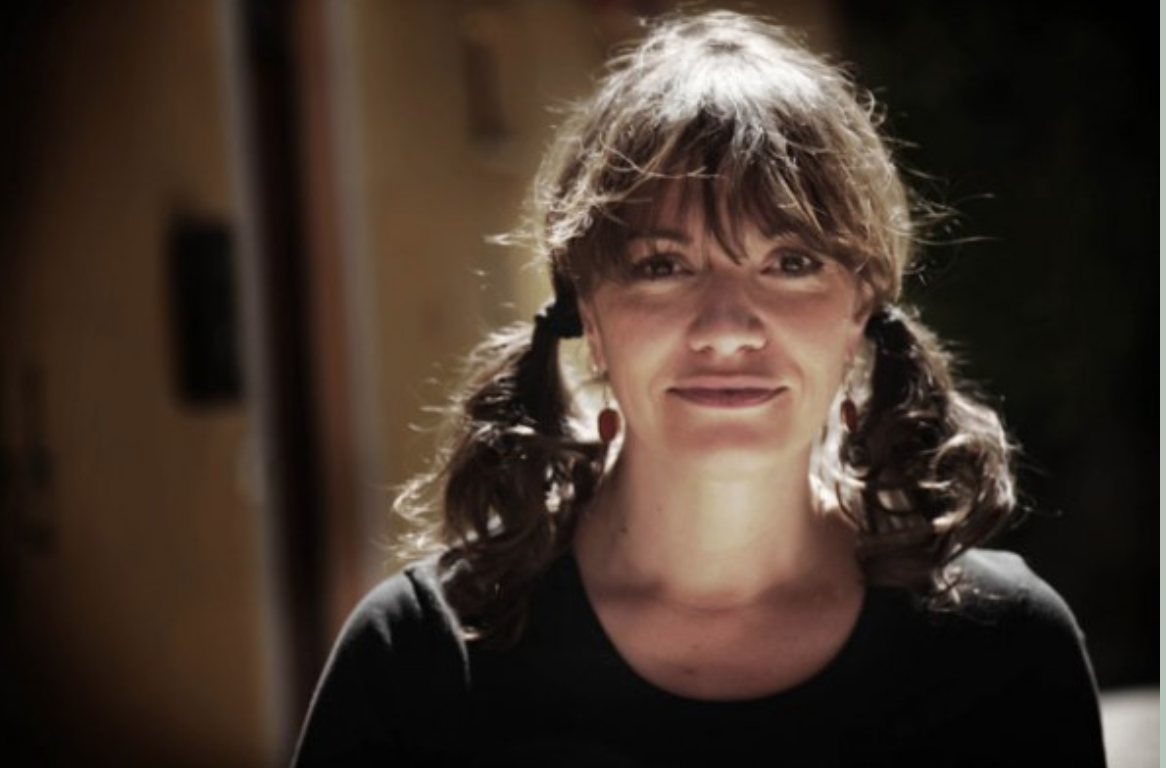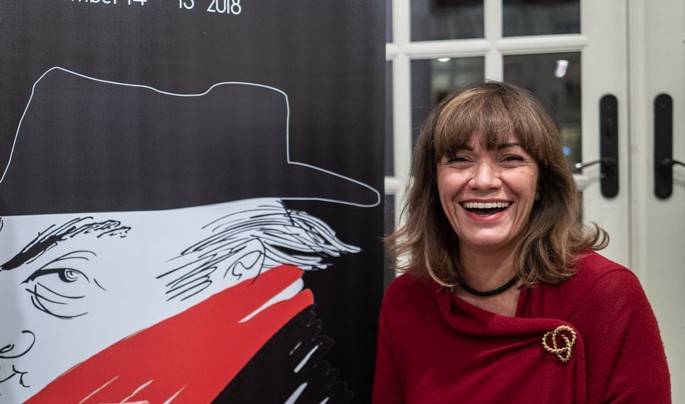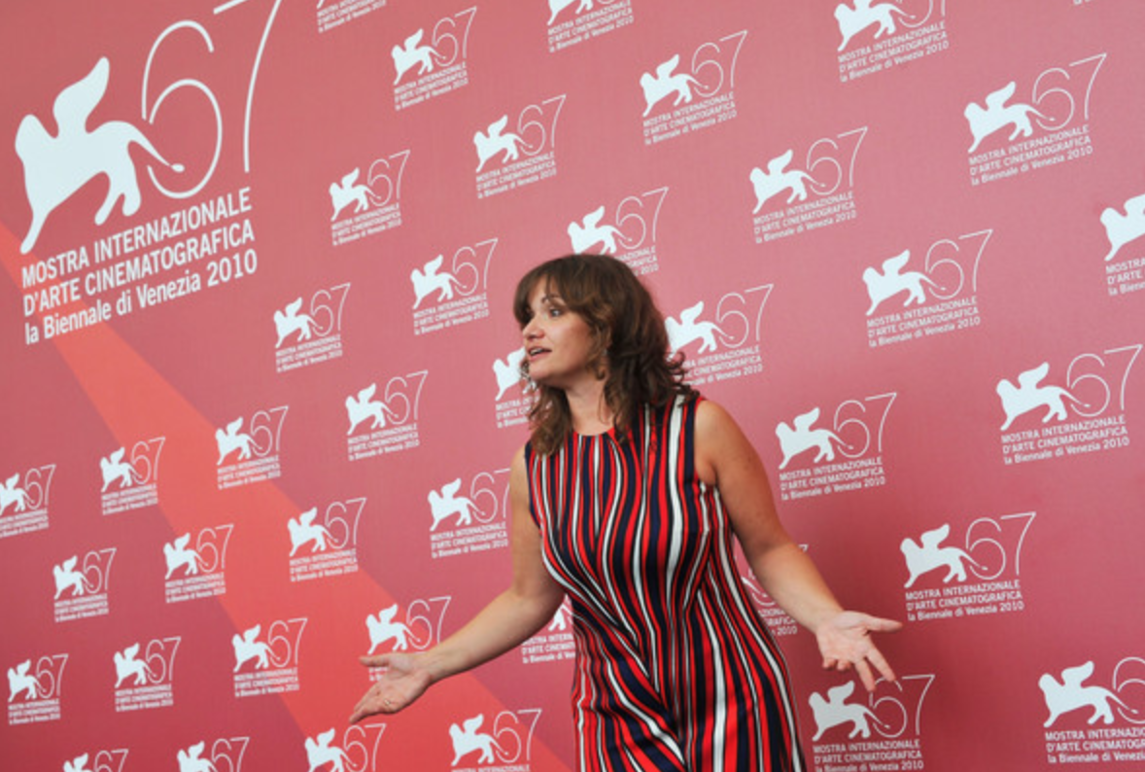Paola Randi, an Extra-Terrestrial Director for Italy
Paola Randi's new movie, Little Tito and the Aliens, shows a very extra-terrestrial approach for Italian standards. Not only for the sci-fi plot but also for its cinematographic style and weird characters, played by Valerio Mastandrea, in the role of a scientist searching for the voice of his latest wife in the universe from a couch in Area 51 in Nevada, and the talented newcomers Chiara Stella Riccio and Luca Esposito playing the scientist’s niece and nephews. After all, nothing in Paola Randi's "universe" is traditional. Little Tito and the Aliens was presented in New York during Italy on Screen Today, an event created by Loredana Commonara to promote the best Italian contemporary cinema.
Why did you choose such an American genre like sci-fi?
I don’t think it is only American. It is rather universal. I was trying to explore how humanity deals with the need of finding an antidote against the fear for death and sorrow. In an essay by Emanuele Severino, “I presocratici” (Pre-socratic philosophers), I discovered that humanity first tried to find an answer in mythology and later in science. I thought that sci-fi was the perfect mixture of the two.
When and why did you decide to become a director?
I have a degree in law because my father, a lawyer, wanted me to follow his path, but then I framed the degree and gave it to him as a present because, really, it was not for me. At the same time, I was working in a nonprofit created by my mother who was providing financial support and training to women in Italy and in developing countries. Only at night, I was living my parallel life as an artist writing, playing, and painting. Then, in my early thirties, I realized that I was living somebody’s else life. So, I left everything, included my fiancé, and went to Rome. In the beginning, I was working in a PR agency, a job I hated. But one day a friend of my boss’s came and said ‘I wrote a short film’ and I told him ‘I will direct it.’ I had no experience, but I was so determined that I convinced him. After I directed the movie, I felt finally comfortable, like I had finally found myself.
Was it difficult to change your professional path at that age in Italy and in a field that is not easy like cinema?
Yes, none of the major schools were accepting me because I was too for them, I was 33. But, although I didn’t like that first short, a client of mine saw it and loved it. He wanted to make a professional short movie to rent a camera and asked me if I had anything for Valerio Mastandrea. Valerio was already a famous actor at that time and I was nobody, but I had written something during a workshop with Silvano Agosti, a great teacher. Indeed, I had a story, Giulietta della spazzatura, about a garbage guy who falls in love with a girl just watching at what she was throwing away. Valerio liked it and we did it. Eventually, I was not satisfied with it, but a friend sent it to the Turin Film Festival and they accepted it.
Do you think it is a very feminine characteristic never to be satisfied?
Probably yes. Sometimes, I am fascinated by my (male) colleagues who are always so sure about what they do. But, in the end, I see it as a positive element. We aim always at something better. One of my biggest dreams is doing exactly what I want to do and see if it works. For example, I would like to have a real chance with the public.
What do you mean?
Distribution is a real issue in Italy because you have very few chances with a movie that does not follow the standards, from a commercial or authorial point of view. Although I had found producers since the beginning, Angelo and Matilde Barbagallo, it was difficult to find people who wanted to invest in the distribution. So it came out with no P&A (publicity and advertising) and was distributed it in the summer when you have no chance especially with a movie for families like this that should have been released in November.
Which were the elements that made this movie so difficult to distribute?
It’s sci-fi. Last time that somebody made a sci-fi in Italy was Nirvana (by Gabriele Salvatores, 1997).
Which directors inspire you?
Hal Ashby is particularly close to my heart, he made masterpieces like Being There and Harold and Maude. I love his elegant touch in depicting a surreal world which is almost like a Magritte painting. One of my favorite directors is also Paul Thomas Anderson and a lot of women like Andrea Arnold, Sally Potter or, in Italy, Alice Rohrwacher and Susanna Nicchiarelli with a movie like Nico. I love women directors and it is a shame that we still have to make a difference.
You even tried to open an association for women in cinema. How was that experience?
Yes, I opened it with Grazia Colombini (costume designer) and Valia Santella (screenwriter) in 2011. We didn’t succeed because we didn’t have data. At that time, women didn’t want to talk about what happened to them, it was a taboo, everybody was scared to talk. Now it is easier because it is possible to talk about it. In fact, in Italy, there is a new association called Women in Film of which I am a member. Moreover, I think that the three leading film festivals in Europe, Cannes, Venice and Berlin, should have also female art directors. That’s what we need. I don’t think there is ever been one so far.
Did you encounter challenges as a woman in your career?
Yes, we are constantly undermined. I am not talking only about sexual abuse, it’s also in the way they look or listen to you, the attitude they have with you. But in Italy often we don’t have the perception of being harassed. It is so deep down in our culture that it doesn’t get recognized and it is taboo talking about it. Even now if you say that you are a feminist, you are looked at as somebody with a disease. Not to talk about women’s roles in cinema: there are a lot of fragile, hysterical, poetic, delicate or wasted women, or you have mothers. But where are real women, the rest of us?
So far your protagonists were men though.
My next project is going to have two female protagonists. But, again, they don’t fit the cinema's standards, so it won’t be easy.
Why they don’t fit?
They are not super cool or super fragile. They are real women.









































i-Italy
Facebook
Google+
This work may not be reproduced, in whole or in part, without prior written permission.
Questo lavoro non può essere riprodotto, in tutto o in parte, senza permesso scritto.